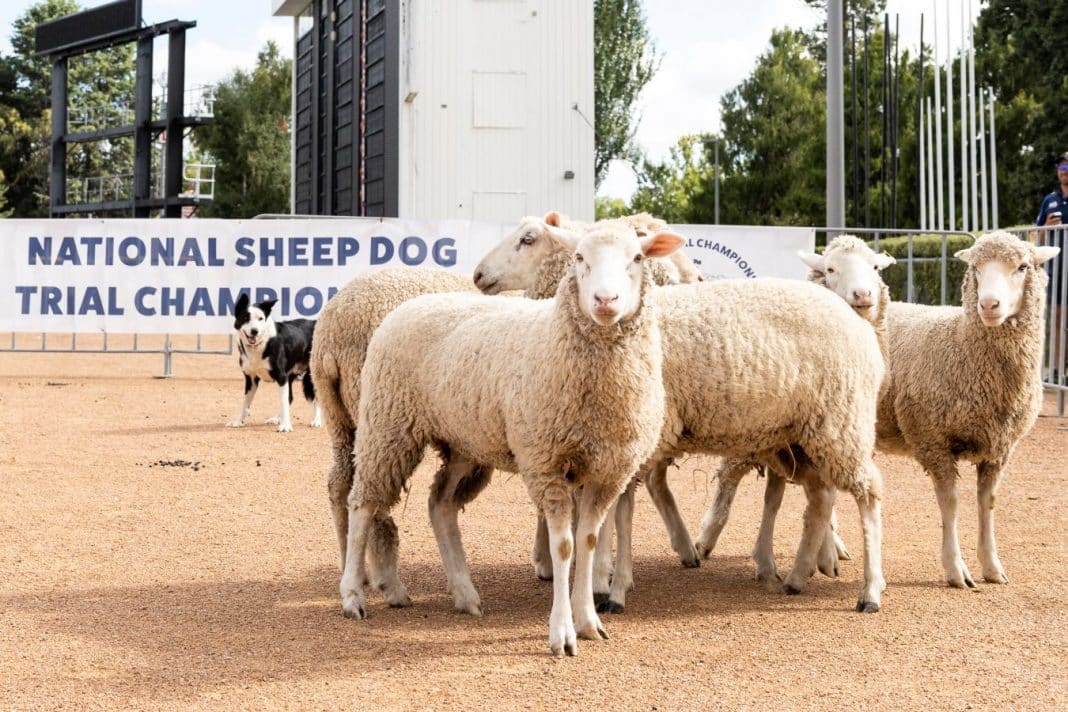Soft fur, wagging tails and wet noses are almost enough to draw attention to any event, however these canines also have jobs – they are the protectors and overseers of their sheep. The National Sheep Dog Trials celebrate their 80th year at Hall Showground on 13-19 March.
The trials test three creatures – sheep, dogs and humans – and their ability to work together to complete obstacles in a limited timeframe. The sport can be traced back 150 years with farmers competing against one another to be known as having the best dog around.
The first official championship event was held in 1943 at Manuka Oval to raise funds for the Legacy organisation during World War II. Starting off as a one-day event, it has grown into seven days of entertainment for all those in attendance.
The National Open Champion takes home a prize of $5,000, a portrait of the winning dog created by artist Linda Dening, a replica Duke of Gloucester sash, and a Greg Prince memorial watch. Other titles include the National Maiden Champion, the National Improver Champion, and Champion of Champions.
The sash is of great significance to the competition. It was awarded to the National Sheep Dog Trial Association by His Royal Highness, Prince Henry Duke of Gloucester, in 1945 when he was serving as the Governor-General of Australia. Hand embroidered with the coat of arms of the Royal House of Windsor, the once royal purple velvet sash has faded to a soft brown with antique hues.
The original sash that was once awarded to winners has been preserved and replica sashes are now presented to competition winners, halved in size and reproduced in the original purple.
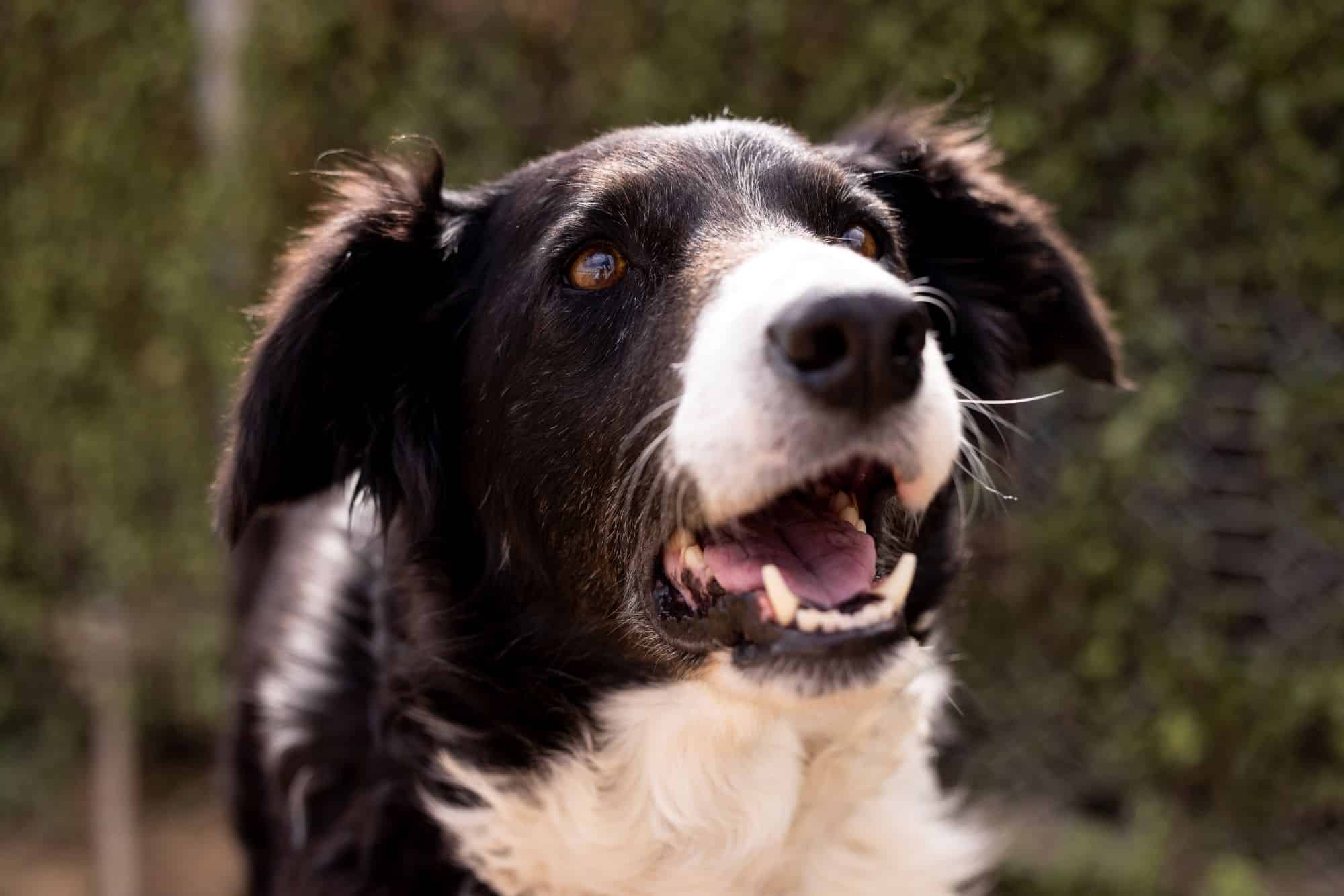
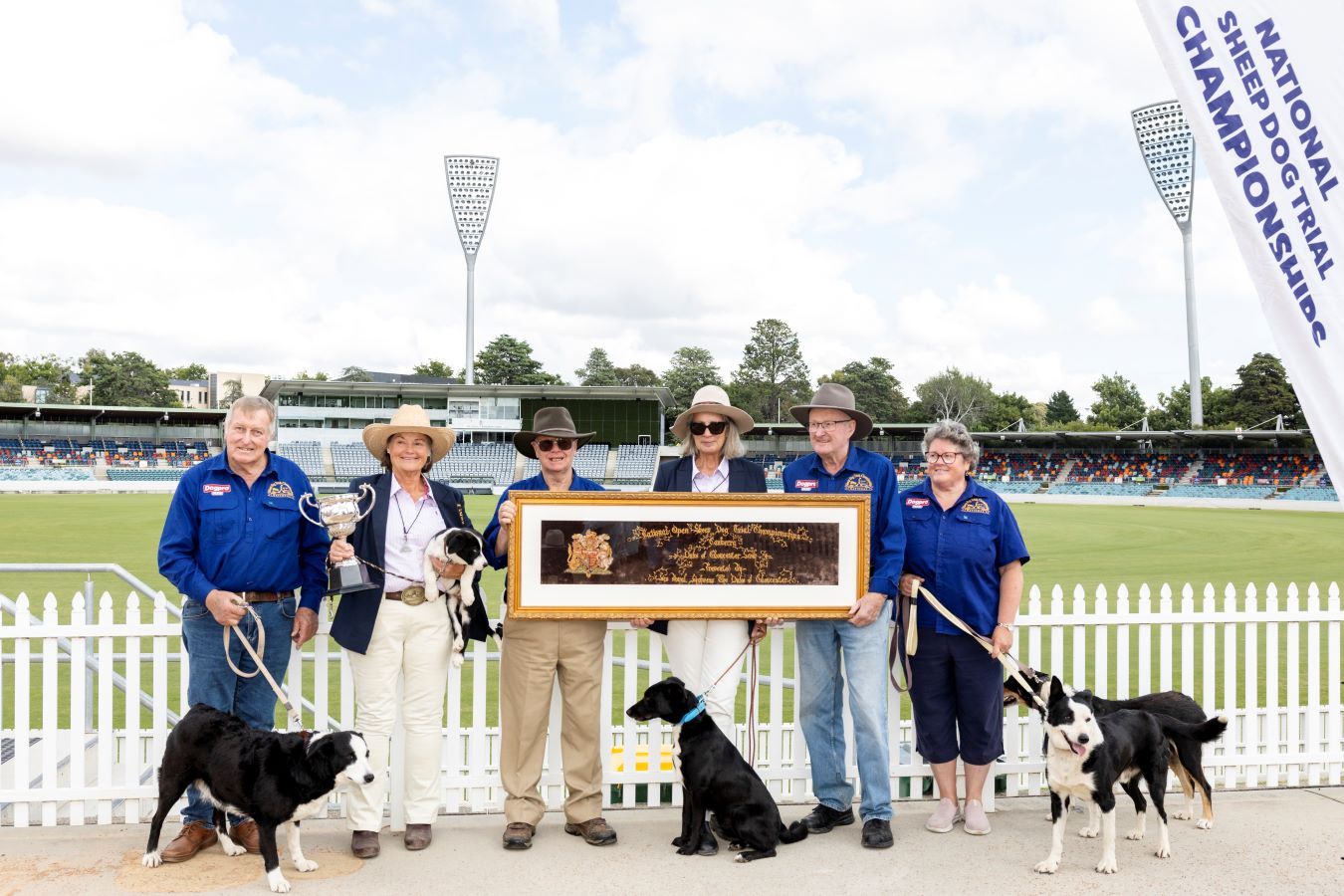
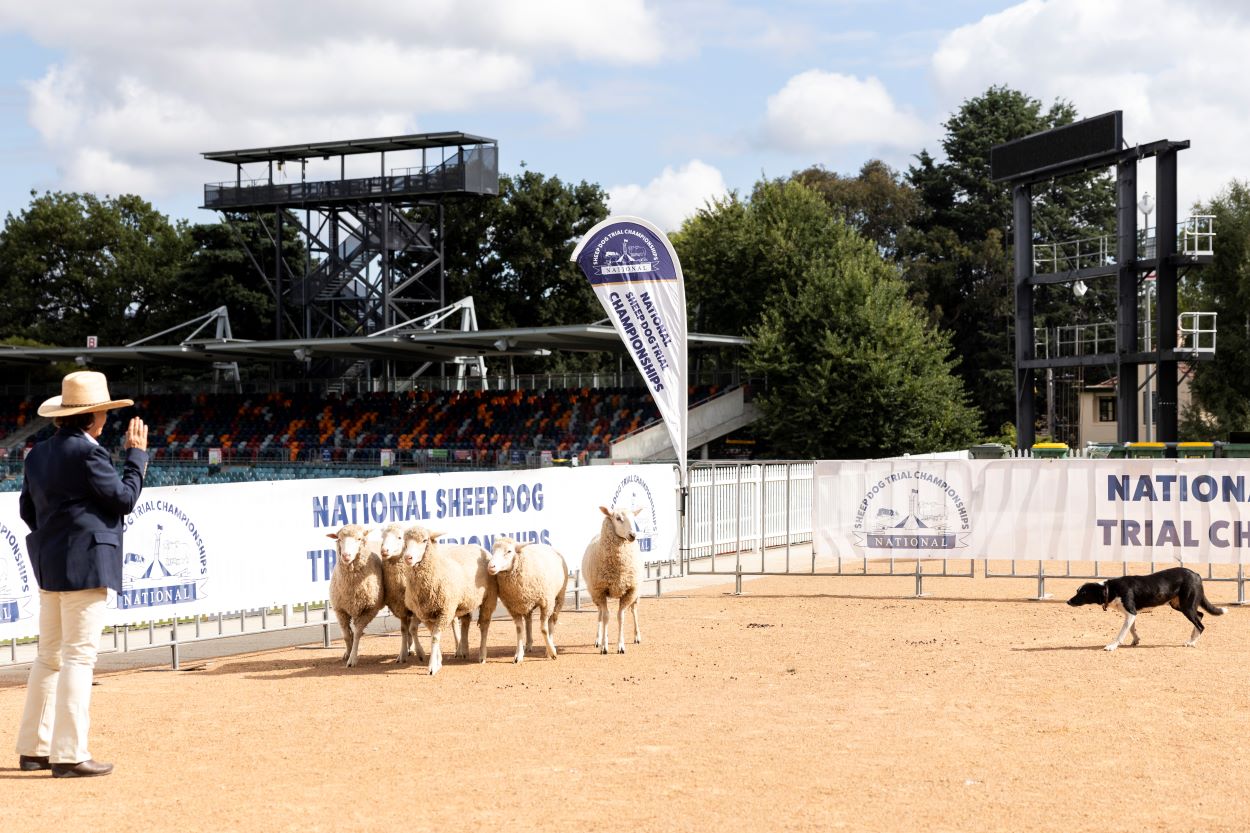
Safety of the animals is a top priority at the event with dogs being disqualified if they are to bite or injure a sheep. Strong consequences are in place for anyone suspected of ill-using their dogs, including being banned from competing at any trials in the future. Trained veterinary staff are on site during the trails in case of any accidents.
A touch quieter than your regular animal showcase, soft whistling can be heard as handlers instruct their dogs and sheep around the obstacles. Organisers are proud of the equal opportunity in the sport, with men, women, young and old, invited to participate. They even welcome mobility scooters into the pen.
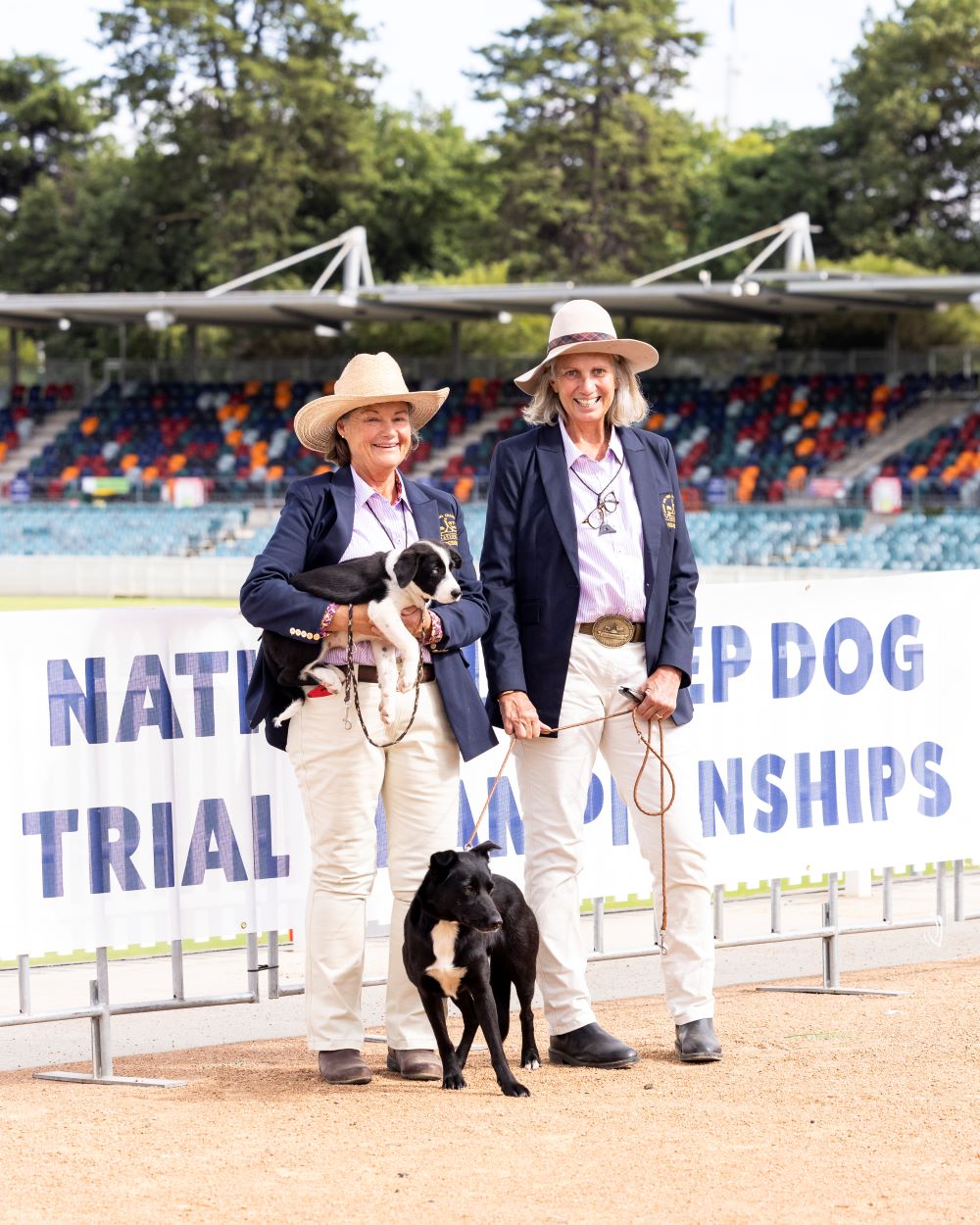
“There’s an old photo of the year 2000, I think there were two women participating that year and that’s why they were photographed. But now sometimes as much as 40 per cent would be women,” says Eileen Moriarty, vice president of the National Sheep Dog Trial Association.
Ms Moriarty believes the increase in the number of women in the association has injected new life into the heritage sport. Women are bringing a “softer” approach, fussing over their dogs more, and putting forth new ideas.
“Women are moving more into the agriculture industry and working with the sheep and working with the stock. There’s a lot more women out there now driving trucks, moving sheep, running properties,” says Sarah Sydrych, president of the National Sheep Dog Trial Association.
Ms Sydrych says her role as president came about entirely by accident after the previous president, Charlie, who still trials his dogs, wanted to step down. He asked her to take on the role and she initially declined. Then, friends in the club said they would leave if she didn’t take on the job. For the last three years, she and her friend and right-hand women have been running things.
“We’re going from strength to strength and what I really liked about it is that having the spectators means that you’re promoting this craft, so that it’ll keep it alive and keep it in people’s minds,” Ms Sydrych says.
Both women started in the sport after Ms Moriarty’s husband bred his beloved female sheep dog, and the stud was chosen, not realising it belonged to legendary sheep dog trialler, Greg Prince.
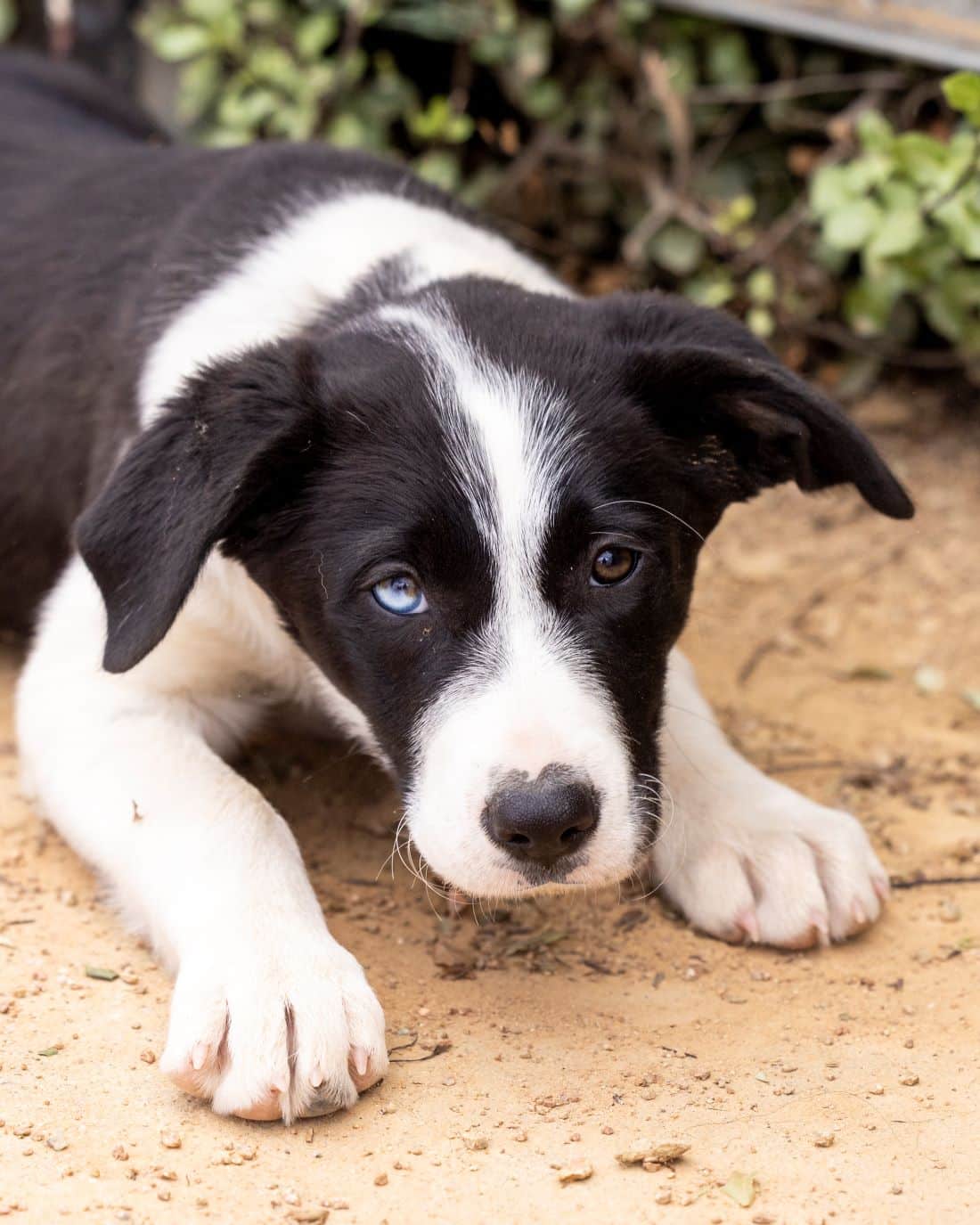
“The pups from that started us all; he gave one to Sarah and I had one and another friend had one and we trained them together and started together,” says Ms Moriarty.
They learned how to work their pups at the Bungendore club, and decided to go to a sheep dog trial to test their improvement. Both having sheep on properties just outside Canberra, they wanted to improve their farm skills.
“There was a working need for them, and I guess we went to get better at being able to work our dogs on our farms, and then from there it was bigger and bigger,” says Ms Sydrych.
The genetics of the dog plays a big role in how well they will do with the sheep, with disposition and drive often being passed down.
“Pretty early you know if they’ve got the instinct and by the time they are two and a half, you know if they have finesse to do the delicate work of trailing,” says Ms Moriarty.
Dogs that don’t make the cut often stay on the farms as working dogs or are welcomed into a family to live life as a pet.
See the dogs in action at the 80th National Sheep Dog Trial Championships, Hall Showgrounds, 13-19 March; nationalsheepdogtrials.org.au
Get all the latest Canberra news, sport, entertainment, lifestyle, competitions and more delivered straight to your inbox with the Canberra Daily Daily Newsletter. Sign up here.

